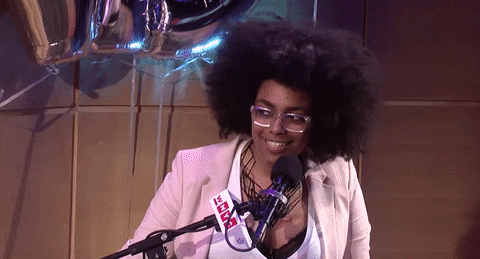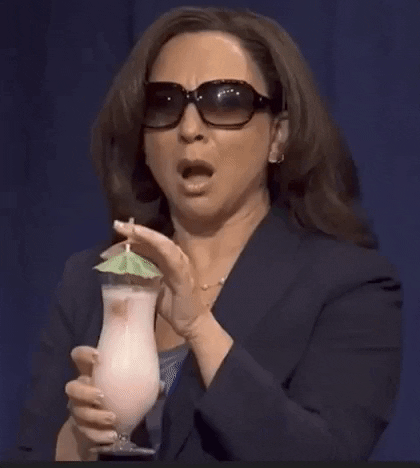
Hello all! :)
My name is Amanda, I am the network mobilizer of Youth Climate Leaders and I am very glad to share a big challenge that I went through at the beginning of this year.
I was invited by Keila McFarland, co-founder of E&U for the Climate (an international student-led organisation driven by the commitment of young citizens to environmental protection that advocates for policy solutions that mitigate the environmental crisis), to participate in the Human Rights and Climate Change: Putting Justice at the forefront of the environmental movement Webinar.
When Keila contact me by LinkedIn chat, I was like:

One of the wishes of my heart is to be an international activist, so I prompely confirmed my participation. This moment was weird: I was suuuuper happy for being noticed by an international organization and I was completely terrified!
A lot of thoughts came up to my mind:
Am I prepared to give an English speech?
Is my level in English good enough?
What could I say in this event?
What if I forget how to speak English?
AMANDAAAAA, WHY YOU ACCEPTED THIS INVITATION???
My brain was freaking out, I know. So, I simply decided to stop over thinking and I started to act. I found a partner to practice the language, I kept studying the topic of my research buuuuuuuut, as an awesome procrastinator, I had nothing prepared until the last day!

The webinar was on Friday (January 29) and on Thursday I was with a big challenge on my hands:
What can be in my presentation???
After talking with Clarissa, YCL Senior Marketing Executive and my mentor, I decided to talk about Climate justice and Environmental Racism.
Would you like to know what it is from the perspective of a African-latin girl? :)

The term Environmental Racism was first addressed by the African-American civil rights leader Dr. Benjamin Franklin Chavis Jr, in 1981, in the context of demonstrations by the black movement against environmental injustices.
According to Dr. Franklin:
“Environmental racism is racial discrimination in the development of environmental policies, application of regulations and laws, deliberate targeting of black communities to toxic waste facilities, official sanction of the presence of life-threatening poisons and pollutants to communities and exclusion of black people from the leadership of ecological movements.”
The term has been expanded and in addition to addressing exposure to toxic waste, it includes flooding, contamination by the extraction of natural and industrial resources, a shortage of essential goods, and the exclusion of management about land and natural resources by local populations. To focus on this theme is to highlight the environmental injustices to which vulnerable people are subjected. Unmarked indigenous regions, slums with a high risk of landslides,
dumps and urban areas not served by basic sanitation are typical examples of oppression against minority groups. The socio-economically disadvantaged peoples are burdened with the environmental damage imposed on their respective territories!

You can’t be an environmentalist without being anti-racist! The history of racism is intrinsically linked to racism: residential segregation, unequal education infrastructures, restricted socio-economic opportunities as just some examples that make people of colour more vulnerable to the threat of climate change and other global issues.
“Talk about Environmental Racism is to fight against neocolonialism exercised by the white supremacist capitalist system, which insists on appropriating the resources of black, peripheral, indigenous, quilombola and riverside populations!”
We need to stop looking for capitalist solutions and start listening ethnic and racial minorities, helping black and indegenous people to achieve the policy and decision-making spaces. It’s time to stand up against the “monopoly” of white privilege and to deconstruct the dominance of white people over the environmental movement.
Dear reader, I would like to invite you to reflect on this theme, decolonize your thinking and diversify your content curation. You can start with your social media, following black environmental activists :)
Amanda C Costa: @amandinhaccosta (founder of @perifasustentavel)
Quenia Lyrio: @quenia.lyrio (Board of Scientific Dissemination at @ambiafro)
Isvilaine Conceição: @isvilaine (founder of @ambientalking)

Did you like the article? Leave your claps, clicking up to 50 times :) Follow me on Instagram, Tiktok, Twitter and LinkedIn!

About Amanda: Graduated in International Relations, Amanda undertakes PerifaSustentavel, is a columnist for Agência Jovem de Notícias and acts as a network mobilizer for Youth Climate Leaders. Leadership Forbes Under 30, she aims to mobilize young people to build an inclusive, collaborative and sustainable planet, through the UN Youth Ambassadors, Global Shapers Community and United People Global.











